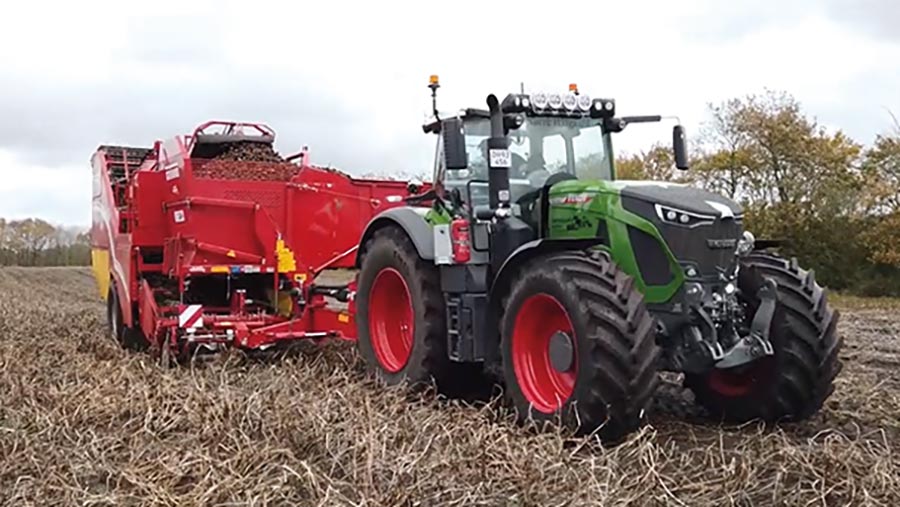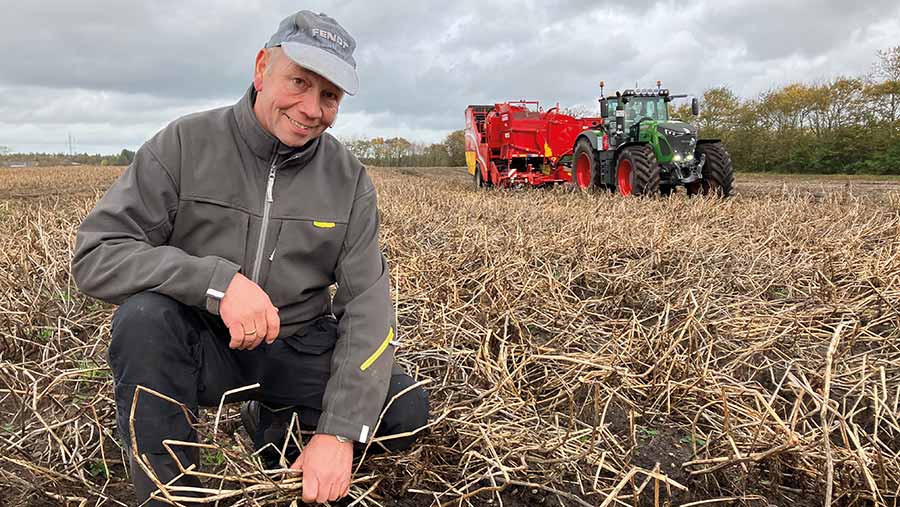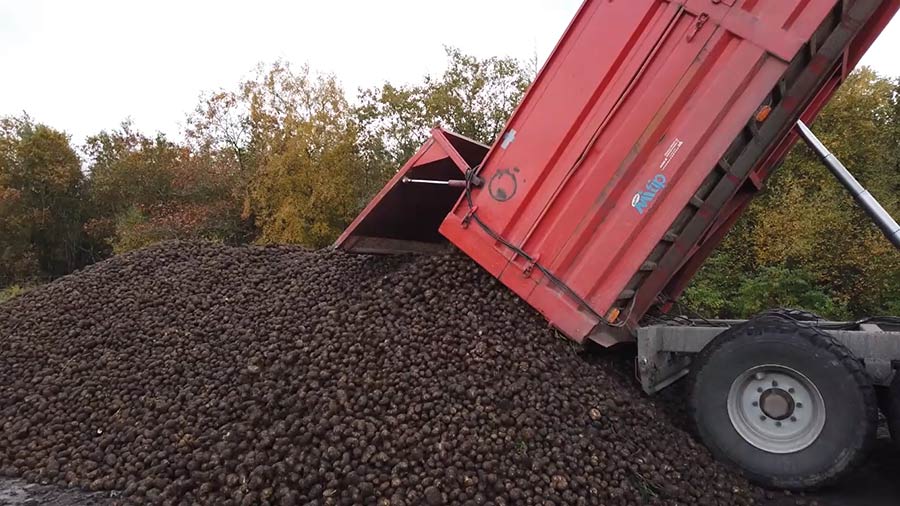Video: Danish potato starch harvest season draws to close
 © MAG/Emma Gillbard
© MAG/Emma Gillbard Potato harvest is almost complete for Danish farmer Niels-Erik Halgaard, who grows the crop for the major potato starch sector in Denmark.
Unlike the UK, the majority of potatoes grown in Denmark are processed into potato starch flour for use in the food manufacturing industry, rather than consumed fresh.
In fact, the country was once the largest potato starch producer in the world, and today it remains one of the top global exporters.
See also: Direct potato sales help grower overcome rise in costs
Watch the video of our visit to see Mr Halgaard’s potato harvest and read the rest of the report below.
Harvest yields
For Mr Halgaard, harvest began on 1 September with the variety Ydun, which is a high-yielding starch variety with good nematode resistance.
He farms 350ha at Nørre Halgaard, Holstebro, about a 40-minute drive from the coast.
He is pleased with how the season has gone, with yields of 55t/ha from his 55ha area of crop.
“We are now harvesting the last potatoes for the season and taking them to a factory in Karop for processing. We are finishing about a month earlier than usual,” he says.
“It’s been a very good season. We just hope for a good price – rising electricity and gas prices could spoil it for us.”
Pricing
In order to sell to the processing industry, growers must have a share in the factory. Each share costs 150dkr (£17.34), which gives the right and obligation to deliver 100kg of potatoes on an annual basis.
The farmers are then paid on account 2.10dkr/kg (£0.24/kg) for potato starch, with hopes of an additional 1.5dkr/kg (£0.17/kg) in final payment, depending on business profits.
It’s worth noting that 75% of a potato tuber consists of water, leaving 20% as starch and the remaining 5% as nutrients, minerals, proteins and other cell remains.
Mr Halgaard produces about 10,000kg of starch from 1ha of potatoes.

© MAG/Emma Gillbard
However, climbing gas and electricity prices is putting the factory under pressure, which could mean less profits for its farm shareholders.
Together with rising fertiliser costs and the price of fuel almost doubling from 5dkr/litre (£0.55/litre) to nearly 10dkr/litre (£1.16/litre), farmers across the world are feeling the fiancial squeeze.
Machinery and processing
A fleet of Fendt tractors are used on the farm. Mr Halgaard purchased two new 724s and two 942s in 2020, now with 2,000 hours on the clock each.
The weather is beginning to turn. Recent rain showers have slowed harvest, meaning machinery is travelling slower across his dark, sandy soils, which are almost black in appearance.
A trailed Grimme SE 150-60 harvester is pulled by the 942 at harvest, before the potatoes are tipped on the roadside field boundary.
Thankfully, there is zero requirement for storage facilities on farm as regular lorries collect the potatoes from the fields ready for factory processing a few days after harvest.

© MAG/Emma Gillbard
The Danish manufacturer Karup Kartoffelmelfabrik, which simply translates as “potato starch company”, collects 410,000t of potatoes from the main Danish island, Jutland, and processes this into 100,000t of white potato flour each year.
The potato starch campaign runs from August to December, with 400 co-operative members supplying factories in Karrop, Toftlund, Brande and Langholt. The final product is stored in large silos so flour can be used all year.
Establishment
Crops were planted on 22 April, when soil temperatures warmed to 8C, due to the later maturity of Ydun.
Only one application of fertiliser is recommended for the variety, preferably at the time of planting, which is why Mr Halgaard applies 220kg N/ha with the drill.
Just like the UK, blight is a major issue. During the summer months, fungicide sprays are used about once a week. However, active choice is limited.
The product Revus (mandipropamid) is permitted for use no more than six times, with Ranman (cyazofamid) used as a back-up.
Crops are left to naturally senesce before harvest as pre-harvest sprays were prohibited three years ago.

